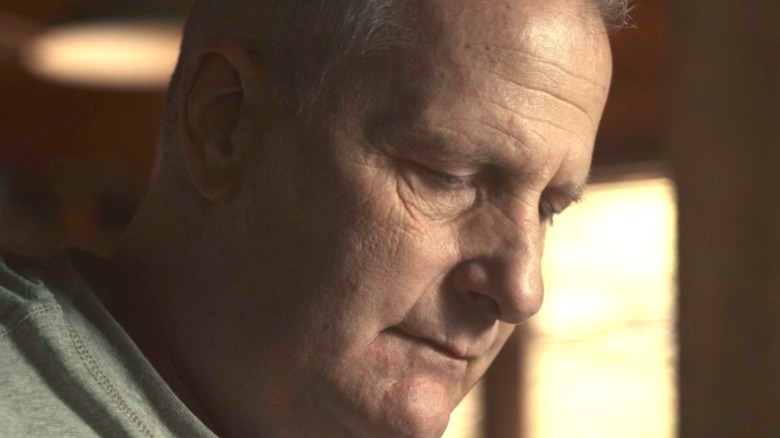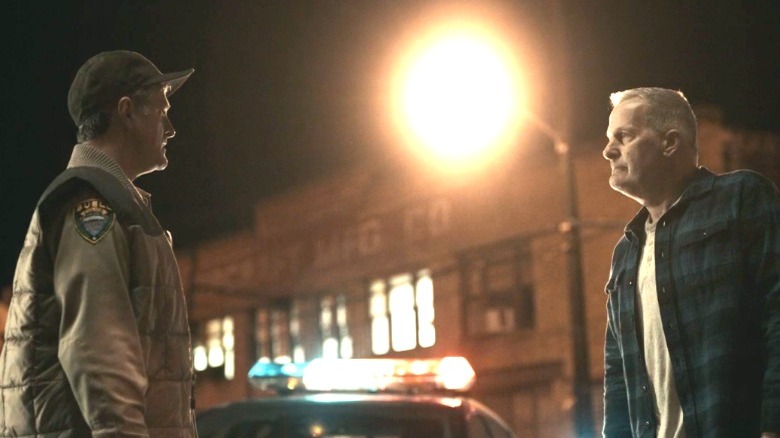What American Rust Gets Wrong About Police Work
On Showtime's "American Rust," Jeff Daniels plays small-town police chief Del Harris in the fictional Rust Belt town of Buell, Pennsylvania, a character that Daniels says he knew he was cut out to play. In an interview with the Detroit Free Press, Daniels explained how his experience growing up in Michigan helped him prepare for the role. "When I got the book, I knew I could play this guy," Daniels recalled. "There are guys like him all over Michigan. I live around them. I came from the working class. I worked at my dad's lumber company. I know these guys, and I am one of these guys." In another interview with TV Insider, Daniels elaborated on how growing up in Michigan helped him with the role. "Yes, had the acting thing not worked out, I would have been working at my father's lumber company in a small town. My whole world would have been that town. What the series is trying to do is say these are good people who are staring at the bottom and have to make bad choices to survive."
Thus, Daniels is very believable as a small-town cop playing by small-town rules.
Still, as down-to-earth and realistic as "American Rust" is in depicting small-town life, policing is pretty much the same wherever you go in America, and there's at least one aspect to the story that doesn't ring very true.
It's not that easy to fire a cop
In the pilot episode of "American Rust," called "The Mill," police officer Pete Novick (Jim True-Frost) gets a little physical with Billy (Alex Neustaedter), and Del makes the decision on the spot to fire the officer. While it would certainly be wonderful if America were a country where corrupt cops could easily be fired, it's actually much more difficult than that to make a decision to fire a police officer. In an editorial written for the Washington Post by Daniel Oates, a former police chief in Ann Arbor, Michigan; Aurora, Colorado; and Miami Beach, Florida–Oates explains how difficult it is to fire even bad cops in all of the cities that he's worked in. Oates claims this is "thanks to a combination of state and local laws, union contracts, and past labor precedents."
A lot of the problem with firing police officers comes down to what's known as "qualified immunity," a phrase that Supreme Court Justice Samuel Alito defined in the case of Pearson v. Callahan as such, "Qualified immunity balances two important interests—the need to hold public officials accountable when they exercise power irresponsibly and the need to shield officials from harassment, distraction, and liability when they perform their duties reasonably." According to an article in Cornell Law, qualified immunity exempts the officer from even facing trial in the first place unless they violated a citizen's constitutional rights, meaning that courts have to resolve qualified immunity issues at the first chance they get in the case. This is why charges are so rarely brought against police officers and why Del should have had a lot more trouble firing Pete.

